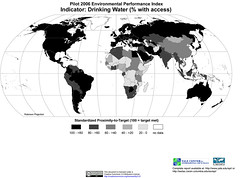 Here in UK we’re
celebrating the arrival of summer at long last. Several days of hot sunshine
and dry
Here in UK we’re
celebrating the arrival of summer at long last. Several days of hot sunshine
and dry
Yesterday, my wife and I
went for a walk along a route we haven’t travelled since last autumn. It’s a 4 mile
stroll through fields around the small market town where we live. The lanes and
paths are rural, winding through farmland for the most part but beginning in
the small village of Little Driffield and ending back in Great Driffield. We
generally stop to watch and listen to the many song birds and we usually,
especially in summer, have to spend a little energy in wafting away the myriad
flying insects that rise from the grass, crops and hedgerows.
This time, the walk was
different. It was hot and dry under a cloudless sky. The birds were quiet.
There was no background hum and buzz of busy insects. Even the crickets were
silent. Disturbingly, we heard only 2 songbirds along the entire walk and saw
only a small flock of Swallows on the wing. The hedgerows were devoid of ladybirds,
the grass hid no crawling or flying insects, the cow parsley was pristine, it’s
creamy flowers entirely undisturbed by the usual crop of cardinal beetles. We
saw 3 small butterflies in a place we would normally lose count. The clover,
usual haunt of honeybees, was silent. No flies, small or large, buzzed us. In
short, the landscape, lush with green vegetation, poppies, wheat, barley, oil
seed rape and wildflowers, seemed bereft of animal life.
I’m no biologist, not even
a naturalist, but I know enough to understand that a lack of insect life must
eventually have a detrimental effect on life further up the food chain. Without
beetles and grubs, the voles, shrews and other small mammals will fail to
breed. The birds will not mate without the promise of food to feed their
fledglings. Not least amongst the concerns at this absence of insects is the
simple fact that most of the food crops grown for human consumption are
fertilised by insects. No insects: no food.
So, where have they gone?
What has happened to cause this unnatural silence and absence of wildlife? The
simple answer is, probably, ‘climate change’. The pattern of weather this year
has been chaotic. We’ve had records in almost every month. Coldest, wettest,
cloudiest, driest and, I suspect, come the end of July, hottest. Such contrasts
within so short a time are all but unheard of. Of course, there have always
been variations in the weather patterns; the climate of this small group of
islands is noted for its changeable nature. And we all understand that, in the
long history of the world, the climate has alternated between tropical and
frozen. But these changes have taken place over millennia, sometimes over
millions of years. What has changed is the time scale.
Like most of my
generation, I recall long, hot summers following mild, wet springs and fading
into cool, damp autumns to end in cold, wet winters. Real seasons. I accept the
evidence may be anecdotal, but somehow, the world ‘feels’ like a different
place now. Rapid change isn’t happening only here in Britain. The world over,
countries are suffering huge variations in their weather patterns. Drought,
storm, flooding, snowfall, natural wildfires, hurricane and typhoon are all
happening with greater frequency and intensity all over the planet.
In the 1980s, I joined
Greenpeace, when that organisation arrived on these shores. At that time, in
spite of other concerns, the scientists involved with the ecological movement
were already predicting that what was then called ‘global warming’ would cause
great variations in weather for the globe. They predicted that the dry places
would become drier, the wet, wetter, etc. ‘Global warming’ in spite of the
accuracy of the term (since global temperatures are on the rise) has been
replaced with the less dramatic ‘climate change’ label. But, whatever we want
to call the process of change, it cannot be denied that change is happening.
I suspect that my local
walk has highlighted a result of climate change. I don’t know if this is the
case, but I can think of no other likely cause. There are those, of course,
mostly with vested interests or employing the ostrich philosophy, who decry all
talk of climate change. This in the face of the fact that most governments and
the vast majority of climate scientists are now convinced the planet is
undergoing serious changes to the climate. The most urgent question we must
answer is, ‘What is causing this disruption?’ If, as most of us who care think,
it is human activity that’s responsible for the dramatic rate of change, then
we need to take action to curb our destructive tendencies. It will mean
changing the way we live, what we eat, how we dress, where we buy our products,
how we utilise energy and resources.
We’re rapidly reaching a
point where a failure to act will cause the changes to form their own momentum.
There’s a strong possibility that we’ll reach a tipping point that, once
exceeded, will be impossible to reverse. Under those circumstances we have no
real knowledge of the consequences. We only know that they’re likely to be
distinctly uncomfortable, possibly dangerous and most likely will lead to war
as resources fail within individual countries. All such change is more likely
to happen after I have gone, of course. It’s for my daughter and her children,
as yet unborn, that I fear for the future. If you have children, perhaps you’ll
give some thought to this issue and, if you don’t already do your share to
avoid the coming catastrophe, maybe you’ll take the trouble to become informed
and take action now, before it really is too late?








